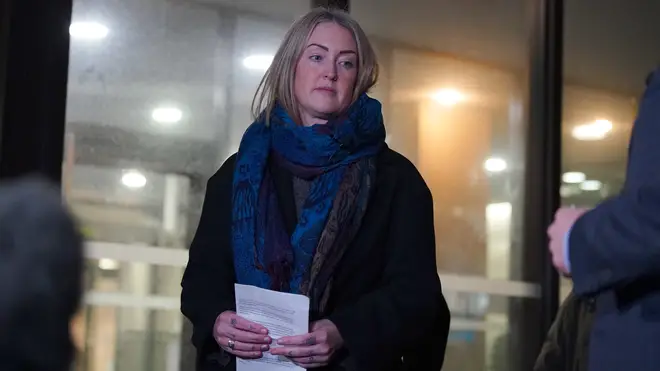
Oli Dugmore 4am - 7am
6 February 2024, 10:04

Esther Ghey is campaigning for social media apps to be blocked on smartphones for under-16s.
The mother of murdered teenager Brianna Ghey has said the Online Safety Act does not go far enough in protecting children online and called for “more drastic” action against online harms.
Esther Ghey is campaigning for under-16s to be blocked from accessing social media on smartphones and stronger parental controls to flag potentially harmful searches to parents, in the wake of the sentencing of her daughter’s killers.
Scarlett Jenkinson and Eddie Ratcliffe were both 15 when they killed Brianna, 16, with a hunting knife after luring her to Linear Park, Culcheth, a village near Warrington, Cheshire, on February 11 last year.
Jenkinson had previously watched videos of torture and murder online.
Dame Melanie Dawes, chief executive of communications regulator Ofcom, said she would be happy to meet Ms Ghey to discuss her proposals, and Ms Ghey also said she would welcome the chance to speak to Prime Minister Rishi Sunak on the issue.
Asked what changes she would like to see made in the smartphone industry, Ms Ghey told BBC Breakfast: “We’d like to see mobile phone companies take more responsibility.
“I would like to see the law change so that children only have access to children’s mobile phones, and that could look exactly the same as an adult’s mobile phone but without the ability to download social media apps, and there is software available already.
“Schools use it and we could link it up to a parent’s phone and if any words are being searched like the words that were searched during the run-up (to Brianna’s murder)… it could be flagged up on a parent’s phone, and then parents are aware of any concerning things that children are looking at.”
Ms Ghey said she thought the Online Safety Bill was “a step in the right direction” but would not be enough on its own, adding: “I think that we do need something a little bit more drastic for children.”
Asked whether a mobile phone was the cause of what happened to Brianna, Ms Ghey said: “I’m not sure whether it started it all, but it definitely didn’t help. I think that the content that they (her killers) were looking at online, it probably fed what was already there.
“I think that mobile phones have a lot to answer for, and it’s not just in the case of Brianna, it’s in the case of mental health for so many people across the country.”
An online petition calling for the changes has also been launched.
Dame Melanie told BBC Breakfast: “My heart goes out to Brianna’s family, and I think what her mum has done over the past few days in getting all these issues really high up the agenda is so important.”
She said Ofcom was using the powers given to it by the Online Safety Act, which passed into law late last year, to “create a safer internet for teenagers”.
Under the Online Safety Act, social media platforms can be fined up to 10% of global revenue for failing to protect children from harmful material online.
Dame Melanie said Ofcom was currently working with social media firms to get the “detail of these laws” in place, which would take “a year or so”, but that the regulator was moving “very fast” and already seeing changes being introduced by platforms in scope of the new rules ahead of them taking effect.
But she said that Ms Ghey’s proposed changes would go “a step further”, adding such a decision would be “ultimately one for our politicians”.
Speaking to BBC Radio 5 Live on Tuesday morning, Mr Sunak insisted he believed the Online Safety Act was robust enough to protect children online.
The Prime Minister said the new law gave Ofcom the power “to actually talk to social media companies and ensure that children aren’t exposed to harmful content online and if social media companies don’t comply with those directives and rules and guidance, they will face very significant fines and penalties”.